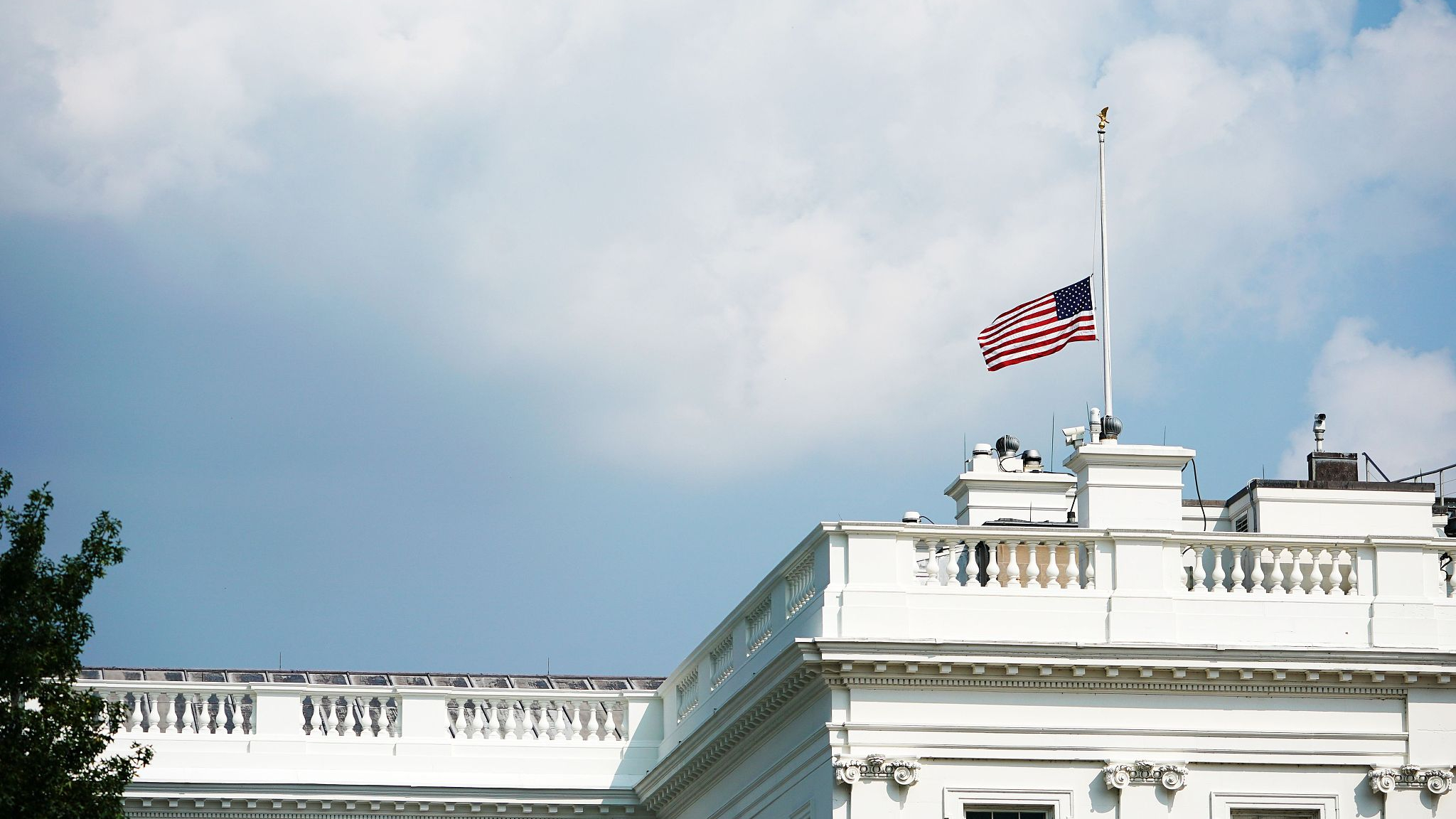
Editor's note: Xin Ping is a commentator on international affairs, writing regularly for CGTN, Global Times, China Daily, etc. He can be reached at xinping604@gmail.com. The article reflects the author's opinions and not necessarily the views of CGTN.
A tragic scene wrenched people's hearts this week: two Afghan teenage boys fell to their deaths after clinging to a U.S. aircraft leaving Kabul airport. An Afghan man was found dead in the landing gear of another jet. What perished with them was the false hope that the U.S. had given the Afghan people.
The U.S. troops invaded Afghanistan 20 years ago in the name of counterterrorism. The war obviously failed, since the number of terrorist organizations now in the landlocked country is a few times more than that two decades ago. The U.S. experiment to build the Eurasian heartland into an American "democratic prototype" also failed, as the U.S.-imposed system is hanging in the balance and cherry-picked officials have laid down their reins.
The remaking of Afghanistan in the U.S. image has been a disastrous failure with huge civilian casualties. From 2001 to mid-April 2020, at least 47,245 Afghan civilians died in the war, according to Brown University statistics. The conflict has forced more than 2.7 million Afghans out of their country and created over 4 million internally displaced, as UN statistics show. All this suffering took place in a country with around 37 million people.
Besides the direct impact on survival, the war has placed a crippling burden on Afghanistan's development. In the 2020 fiscal year, the country's per capita GDP was only about $580. The government, falling short on its revenue for successive years, relied on foreign aid for 60 percent of its fiscal budget.

An armored vehicle patrols in Sherzad district, Nangarhar province, Afghanistan, February 9, 2020. /Reuters
An armored vehicle patrols in Sherzad district, Nangarhar province, Afghanistan, February 9, 2020. /Reuters
The most powerful country in the world, with support from almost all its major allies, occupied Afghanistan for 20 years, but failed to reconstruct it. After all, transplanting a foreign model on a country with utterly different national realities lacks a home-grown foundation and public support, which explains its fragility and passivity. An imposed foreign model is never the solution to a regional or domestic problem; the model itself is the problem.
The incompatibility of U.S. democracy in a foreign country reminds one of the Vietnam War. The U.S. created a South Vietnamese military based on lavish use of firepower and endless supplies, but with little connection with the local people. That failed to translate into public support and confidence.
The Vietnam policy "was rooted in the demands of U.S. domestic politics rather than a realistic assessment of the interests or the wishes of the Vietnamese people", as Max Hastings, one of the leading historians on modern warfare, pointed out. What the U.S. did and still fails to realize is that in the end, wars demand political, not military, solutions.
The U.S. was at the height of its power when it invaded Afghanistan and its unchecked capabilities were matched by the hegemonic ambitions of reshaping the entire world to its liking. But the war for 20 years has drained U.S. resources away, with more than $2 trillion spent, nearly 2,500 troops killed on the battlefield and tens of thousands of military contractors and others wounded.
There the U.S. left, without a long-term strategic plan for nation building. As planes were taking off, President Joe Biden charged the Afghan authorities and troops with lacking the will to fight for their future. What he didn't mention was that he and the past three U.S. presidents did not even give a chance to the Afghan people to decide for their future.
Americans worry that the flight from Kabul will strike another blow to U.S. credibility. But the world should have been better prepared for this. We must not forget that in Vietnam in 1975, the U.S. abandoned its "cause" on a whim after decades of military adventurism.
In Kabul in 2021, there is a new "Saigon moment." But it is never the last "Saigon moment."
(If you want to contribute and have specific expertise, please contact us at opinions@cgtn.com.)

